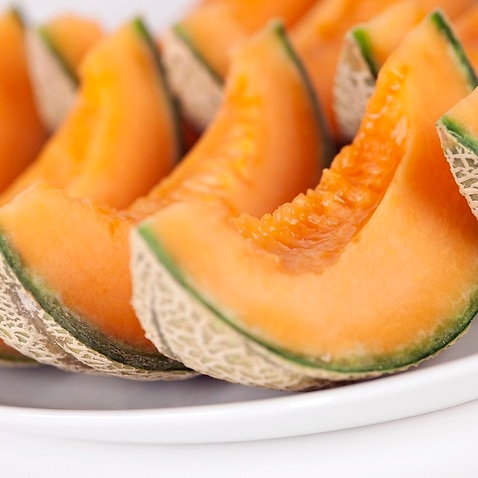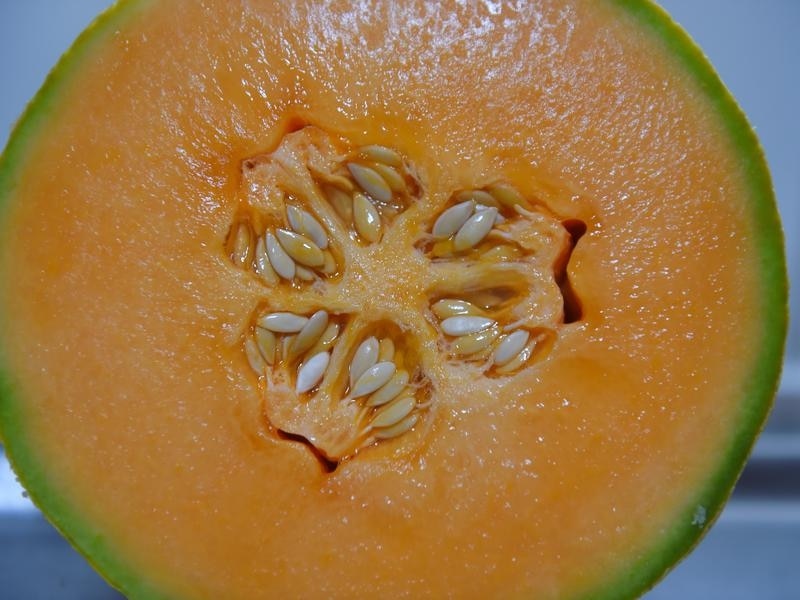Rockmelon crisis: What is listeria and how to avoid it?

READ MORE
A listeria outbreak that resulted in the deaths of two people in New South Wales has sparked warnings from health authorities for Australians to throw out their rockmelons (also known as cantaloupe).
So far, ten elderly people across Australia have been diagnosed with listeria infection after eating rockmelons from the NSW Riverina region. The affected melons have been removed from sale.
But what is listeria and how can you protect yourself from it?
What is Listeria?
Listeria infection, also known as Listeriosis, is a rare but potentially severe illness caused by bacteria that infect humans and other warm-blooded animals.
It is caught most commonly through contaminated food.

71 cases were reported in 2017, while 30 cases have been detected so far in 2018. Those infected often require hospitalisation and antibiotics.
Roughly 15 people die from listeria infection each year – according to the Australia and New Zealand food standards authority.
How do you get listeria infection?
Listeria is found in a plethora of environments and food items including:
- Dirty water, irrigation water, soil and fertiliser
- Cold chicken, deli meat, and pre-packaged meats
- Raw and cold seafood including smoked salmon
- Ice cream and unpasteurised milk products
- Soft cheeses such as camembert and brie
- Fresh fruit and bagged vegetables
- Pre-prepared salads
- Soy products such as tofu and tempeh
Lisa Szabo, CEO of Food Authority NSW, told SBS News that listeria infections happen most frequently through the food we eat, especially pre-packaged items.
“The bacteria are found very widely in our environment,” she said. “It’s present in the soil and it can be present in water. It can also be present in animals, whether it’s pets, cattle or sheep. So it’s not unexpected that it does find its way into food.”
Infection can also occur through contact with animals and pests, and insufficient cleaning of contaminated fruit and unclean hands.
Who is most at risk?
Listeria is uncommon in people with robust immune systems. Those most at risk include; pregnant women, infants, the elderly, people weakened by chronic illness and those taking immunity-impairing medications. Blood or spinal fluid samples are necessary for doctors to diagnose infection.
Listeria is not normally transmitted between people, although a pregnant woman can pass it onto her unborn baby through the placenta. Transmission can result in stillbirth or premature birth.
What does listeria do to the body?
Ms Szabo said listeria commonly presents as flu-like symptoms but infected patients have also presented with pneumonia and heart valve infections.
“People can have aches, pains, fever and chills. Some people can get nausea, and sometimes people will get diarrhoea,” she said.
“In very extreme cases people can get septicaemia and meningitis, and unfortunately, some people do die as a result of the more extreme forms.”

How to avoid getting it?
To avoid Listeria infection, Ms Szabo emphasised that people need to maintain good hygiene standards and be especially careful when buying and consuming fresh produce.
“We’re saying to people, particularly those who fall into those high-risk groups, not to purchase melons that have been bruised or damaged. That might be giving an indication that maybe organisms on the outside of the food have gotten into the middle,” she said.
“We also want to enforce basic hygiene messages: washing your hands before and after handling food; and making sure your cutting boards, dishes, utensils and countertops are washed and clean.”
Food Authority NSW and the Food Safety Information Council list the following simple measures:
- Avoid items past their ‘best before’ or ‘use by’ date
- Refrigerate food items within two hours of slicing.
- Cook foods thoroughly
- Reheat food until it is steaming hot
- Refrigerate leftovers promptly and use within 24 hours, or freeze
- Ready to eat food should never be stored in the fridge for too long

How was the outbreak linked to rockmelons?
The latest Listeria outbreak has been linked to a rockmelon grower in the NSW town of Nericon, near Griffith, who voluntarily ceased production last week after being notified of the contamination.
Food Authority NSW has launched an investigation and CEO Lisa Szabo said her team is looking at a variety of contributing factors.
“It could be contaminated water, the type of fertilizer that was used, or that there was insufficient cleaning of the rockmelons prior to sale,” she said. “But if people are now seeing rockmelons on the shelves of supermarkets, they’re not rockmelons that have been implicated in this particular outbreak.”
Authorities have advised consumers to dispose of rockmelons in rubbish bins, not compost bins, if they are uncertain of the fruit’s origin.
Article source: http://smh.com.au/afl/preliminary-progress-helped-by-fate--and-collingwood-20170922-gyn7fr.html
Comments
Post a Comment